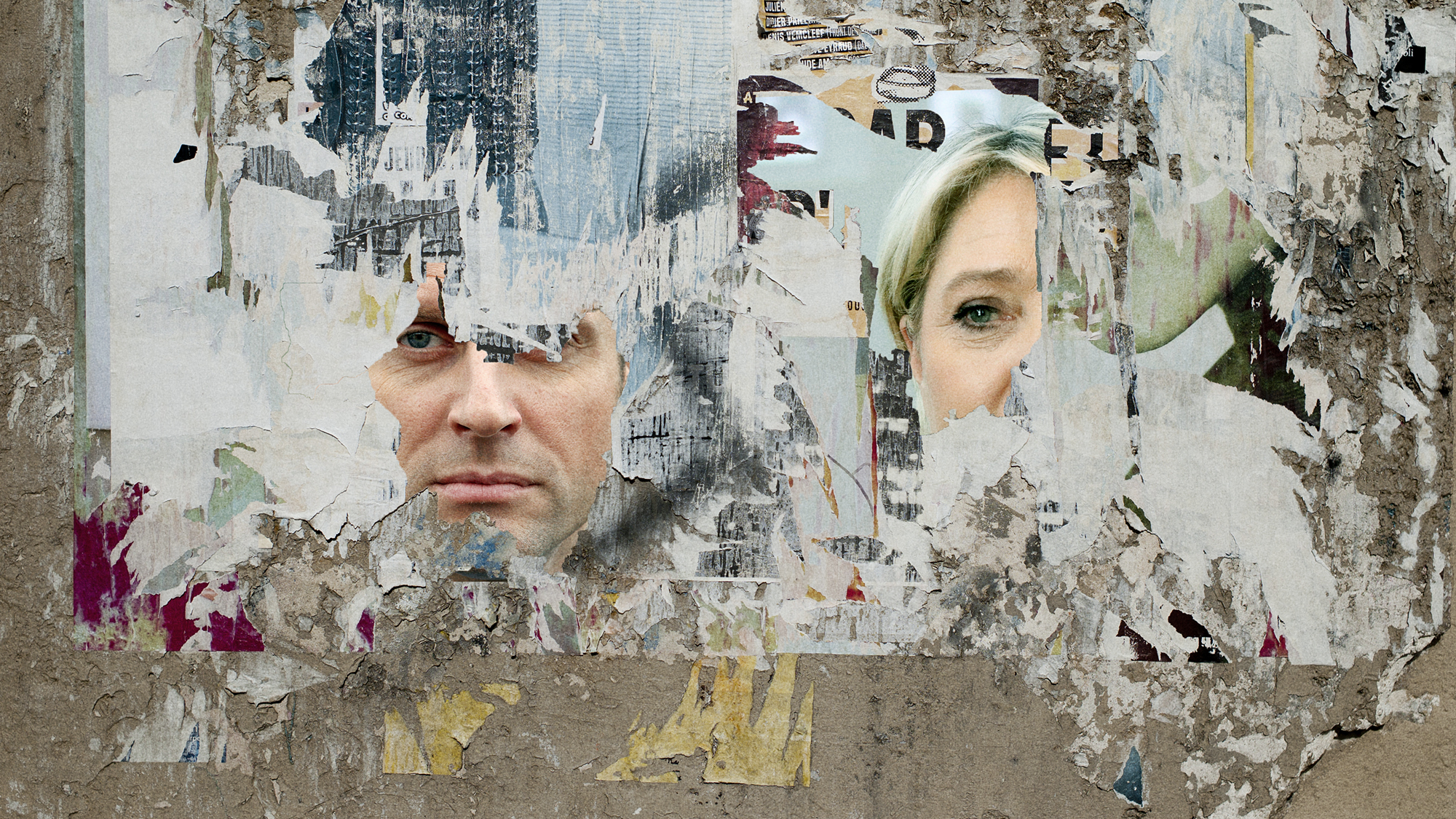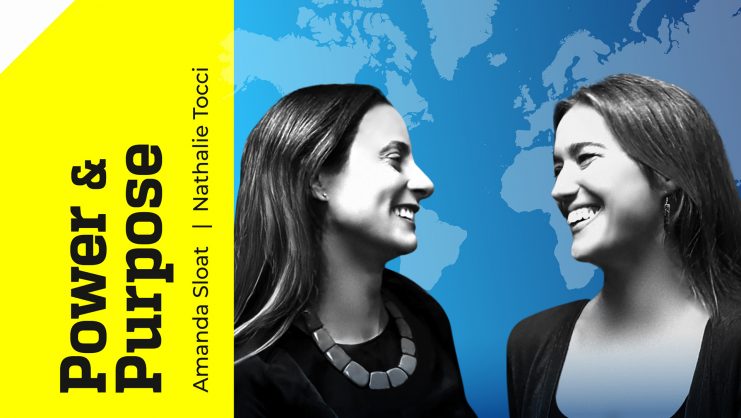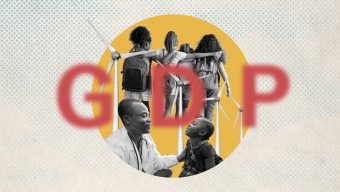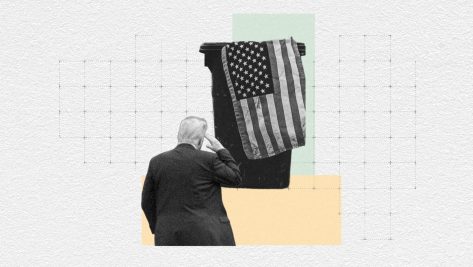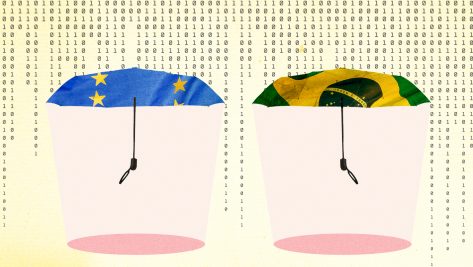Two years ago, I wrote about the French presidential elections and the challenges that Macron would face in his second term. Some things I managed to get right. For example, predicting that Macron’s party would win a (relative) majority in the June 2022 legislative elections and that Macron would have to work hard to unite an increasingly divided nation and reengage a significant proportion of disaffected voters. He was largely deemed then – and now even more so today – to be out of touch with the grievances of the average French person regarding a falling purchasing power (le pouvoir d’achat), inflation, insecurity in the streets, and immigration. These were voters’ priority issues in 2022 and they remain pretty much unchanged today.
Where I was wrong two years ago, however, was in thinking that Macron’s reelection would instate a sense of prolonged order after his first five-year mandate. In fact, French politics have gotten, if anything, even more divisive and volatile. Macron hoped to usher in an era of stability but has instead faced increasing dissatisfaction that resulted in a shock victory for the Rassemblement National (RN), Marine Le Pen’s far right party, in the European elections a little over five weeks ago. With 31.37% of the vote, the RN trounced Macron’s Renaissance party, which obtained a paltry 14.6%. This prompted Macron to call for surprise snap legislative elections of the Assemblée Nationale. The first round on June 30 yielded even higher returns for the RN winning an unprecedented 33% of the vote, and with the le Nouveau Front Populaire (or NFP, the alliance of five left-leaning parties) reaching 26% and Macron’s Ensemble Alliance trailing with a distant 20%.
Macron had bet that these snap elections would somehow shake up the French electorate and bring it to its senses. Instead, voters doubled down, choosing the RN over its rivals and opting for the possibility of putting RN president Jordan Bardella into Hôtel Matignon (the Prime Minister’s residence). After the first round of elections in June, it seemed that Macron’s gamble was backfiring.
That said, no one – none of the pundits or experts who were closely following the elections (including me) – anticipated what was to happen between the first and the second round of the elections. Approximately 200 candidates who had come in third place in what many coined “triangular races” for parliamentary seats ended up desisting and dropping out, urging voters to opt for runner ups who were facing RN candidates in the second round. This tactic was adopted by many NFP and Ensemble candidates in what was hailed as the raising of a Front Républicain or Republican Front against the far right. The same strategy was successfully implemented in three prior presidential run-offs against Le Pen (in 2002 with Chirac, and in 2017 and 2022 with Macron).
To everyone’s surprise, the Front Républicain worked again this time. Not only did the RN not obtain an absolute majority – or even a relative majority – but they came in a disappointing third, trailing the Nouveau Front Populaire as well as the previously written-off Ensemble alliance, Macron’s center-right coalition that had been largely expected to collapse. In other words, Jordan Bardella won’t be moving to the Hôtel Matignon any time soon.
Macron, once the golden boy of French politics, will now forever be remembered as a political star that burned bright and then rapidly faded.
Every possible scenario was discussed and analyzed by experts and pundits in the days preceding the second round, but no one predicted these results. So, what happened between June 30 and July 7? And what conclusions can be drawn from these unlikely outcomes for the RN, the NFP, Macron, and for French politics in general?
The French electorate is still not ready to let the RN govern France. The glass ceiling that previously prevented Le Pen from being elected remains unbroken. As much as Le Pen has “de-demonized” her party and given it a face-lift with the help of her charismatic, photogenic, and media-savvy young protégé Bardella, voters still distrust the RN’s racist, xenophobic, antisemitic, anti-European roots. A few notable instances in the days before round two accentuated this fear. Several RN candidates made antisemitic and xenophobic remarks that were widely reported in the press. Others gave weak interviews on regional radio stations and paled against local competitors. The RN’s economic program was also scrutinized more closely and, in an effort to attract more centrist voters, the RN seemed to backpedal on the pledge to revoke Macron’s recent pension reform and bring down the retirement age to 60 years. This made the RN seem inconsistent and fickle. In addition, there were also some dismaying comments made about excluding French people with dual citizenship from sensitive government positions.
These latest RN election results are the inverse of those in 2022. Two years ago, the party lost the presidential elections and then rallied in the legislative elections. Now, in 2024, they were the leading party in the European elections only to disappoint at the legislative ballot boxes.
Nevertheless, while the RN did not get their anticipated 289-seat majority (they “only” obtained 143 seats), they still snatched 54 additional seats – that’s up from 89 in 2022 and just eight seats in 2017. It is clear that the RN remains a force to be reckoned with and, as Le Pen recently stated, their victory has only been postponed.
The NFP managed to defy all odds and win the 2024 legislative elections with 180 seats. The question is, will its unity hold? The NFP consists of five left-leaning parties that have very little in common other than their political orientation. While the coalition did not garner an absolute majority, it still elected more deputies than the other two blocs at the Assemblée. Normally, this relative victory would enable them to propose a Prime Minister to head the French government. But it is extremely unlikely they’ll be able to agree on a candidate. Jean-Luc Mélenchon, the fiery and abrasive leader of La France Insoumise, the largest party in the Nouveau Front Populaire coalition, is considered by more moderate NFP members as too divisive and contentious. For example, some find his controversial views on Hamas since the 10/7 attacks almost extremist, and the more centrist NFP members are particularly weary of Mélenchon’s politics.
Macron is a much diminished and weakened presidential figure. His political gamble to dissolve the National Assembly and obtain what he called “clarification” from the French electorate failed spectacularly. As it stands now, the Assemblée Nationale is even less governable than before the parliamentary elections. As none of the three political blocs won a majority of seats, they have no choice but to negotiate and form alliances that could break the deadlock. This situation is common in many European countries but quite novel for France where there is no culture of power sharing or compromise. Deals with political opponents are often considered betrayal.
It remains to be seen how Macron will navigate this very uncertain political landscape. What is undeniable is that his party lost 82 seats after these elections (from 245 to 163). Yes, it could have been worse, the Ensemble party could have collapsed altogether as many feared it would. But the loss of influence is substantial and entirely self-inflicted. Macron, once the golden boy of French politics, will now forever be remembered as a political star that burned bright and then rapidly faded. His reputation and image are irreparably tarnished.
French politics remain unpredictable. No one projected a Nouveau Front Populaire win in the second round of the legislative elections. In the 2022 presidential elections, the French socialist party had been pretty much written off with 4.79% of the vote. Two years later, it is now back in the game with 13.83% in the European elections and 64 newly elected deputies at the Assemblée Nationale on July 7. Macron’s Ensemble coalition survived imminent collapse. As of today, it is anyone’s guess who will be appointed as Prime Minister to head the new French government. In this sea of surprises and uncertainty, all eyes are on the 2027 elections. Expect the unexpected. Anything could happen.
© IE Insights.



